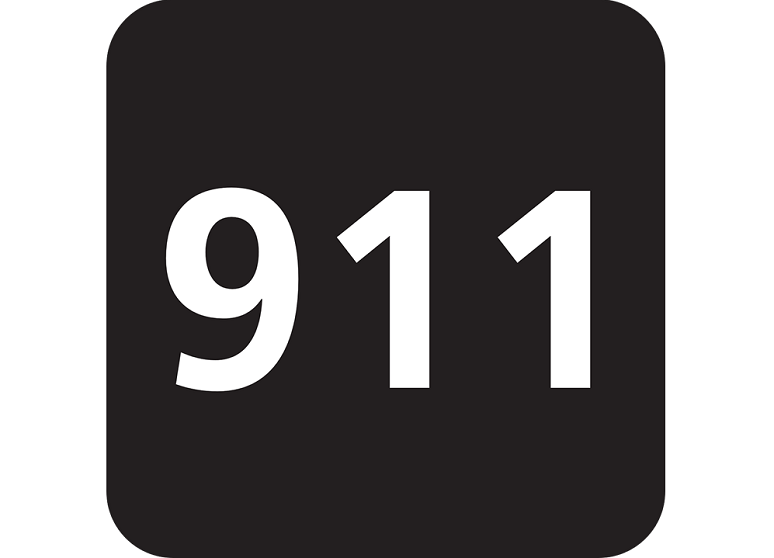It's not always easy to understand the underlying technology that makes calls to 911 work, and it's not always important to understand that technology, just so long as it works when you need it. But what is easy to understand—and important to know--is that if federal funding for technology infrastructure to support the transition from E911 to Next Generation 911 (NG 911) isn't made available quickly, the underlying technology, and the reliability and accuracy of caller location information that that technology enables, is itself on life support.
That funding had been approved by the House in the summer of 2022. According to an estimate by NENA and the NG-911 Coalition, approximately $15 billion to support to the transition from E911 to NG911 had been approved. That funding was eliminated from the $1.65 trillion omnibus spending bill that was passed and signed by the President in late 2022. That's right. A nonpartisan issue like funding for NG 911 deployment became a victim of the budgeting process and is currently set at—wait for it—ZERO. No money, no deployment. End of story. For now.
As Melinda Sensabaugh's fine post from last week asks at the start, "Why can Uber and Lyft know where to find you and the public safety infrastructure cannot?" It's really about the underlying technology, and the evolution from E911 to NG 911 will help to make that transition happen.
This transition has two major hurdles according to consultant and No Jitter contributor Michael Finneran. "First, upgrading the PSAP infrastructure to receive dispatchable location by voice, text, and possibly other methods (i.e. get over the "telephone" obsession and join the 21st century), and second, requiring mobile operators to implement technologies in the mobile network(s) that will provide more precise device location (like Uber has) per the FCC's published requirements. The issue of locating stations in a multi-line system environment is another aspect of that "improving accuracy" requirement.
But it's not that easy, primarily because the cost to build the infrastructure is significant, and thus far, Congress has not been able to allocate and secure the funds to do the job. $15 billion is hardly pocket change, but it's a modest outlay compared with other funding allocations that both Congress and the Administration have and will make in the coming year.
A little history may be helpful. In 2022, H.R. 7624, the Spectrum Innovation Act passed the House, following a unanimous vote in the House Energy and Commerce Committee. This legislation created a federal grant program to be administered by the National Telecommunications and Information Administration to provide infrastructure funding to both state and municipal governments to deploy equipment, software, training and cybersecurity enhancements, all of which are critical. While the bill was referred to the Senate Committee on Commerce, Science and Transportation in the Fall of 2022, no final action was taken. Although public safety is not a partisan issue (see the NG 911 Coalition ), with the new 118th Congress in place, the bill will need to be reintroduced and passed in the House before even getting to the Senate for a vote. Even once funds have been made available, in the form of grants to communities, deployment will still take a long time, as rules and specs need to be written, equipment ordered and installed, and the network fired up. We're talking years. This is why getting Congress to act now is absolutely critical.
One of the biggest challenges of NG-911 is to create an environment where different emergency communications centers can communicate with each other. Even since the tragedy of September 11, 2001, proprietary interfaces, as well as geographic boundaries, still exist across networks making interoperability an ongoing challenge. Issues of jurisdiction, equipment, software versions, and different service providers all still exist, effectively preventing a seamless operation amongst and between different emergency assistance providers.
To reflect the diversity of interests, the NG 911 Institute's 15-member board includes representatives from APCO, NENA, NASNA, with other board representation coming from industry, public safety, vendors selling to public safety agencies, and other interested members. In addition, the NG 911 Institute has bipartisan support on Capitol Hill in both houses and of both parties in the form of the Next Generation 911 Caucus. It's led by Senator Amy Klobuchar (D-MN), and House Representatives Richard Hudson (R- NC) and Anna Eshoo (D-CA). The list of members is available here and I encourage you to join me in writing to any and all members to encourage their ongoing support of this critical initiative. We need to keep this issue on the front burner.
This is particularly critical since at least one vendor is touting its abilities to handle emergency reporting, when, in fact, the underlying system just isn't there. According to Michael Finneran, "the embarrassing part of the answer is that the MOPs spend their advertising dollars on things that make them look good. E911 accuracy performance doesn't seem to fit the criteria!"
NG-911 may not be on the top of anyone's priority list because sadly, most people just assume that it works and works well. But the fact remains that a first responder has just four minutes to get to someone who is in cardiac distress, and any existing technology or interoperability challenges only lengthen the amount of time that it takes for an emergency call to be received and first responder assistance dispatched. It's not a crisis until it's your crisis. Please, please, please take the time to reach out to those who will make a difference in getting this essential upgrade funded. At the risk of sounding like the girl who cried wolf, it really is a matter of life and death.










